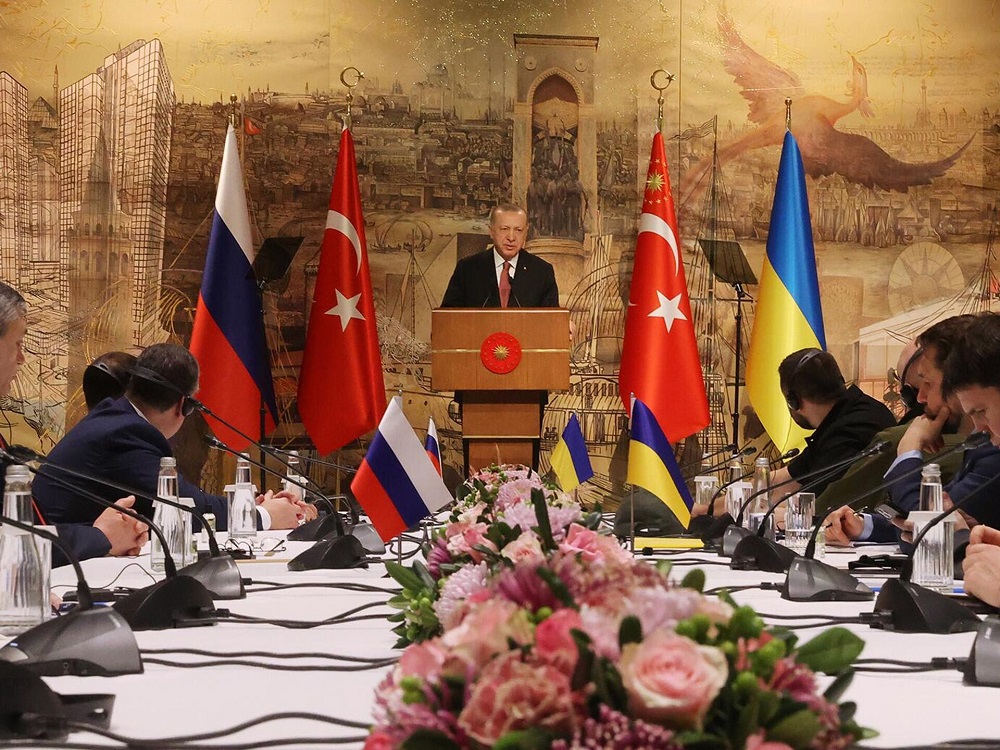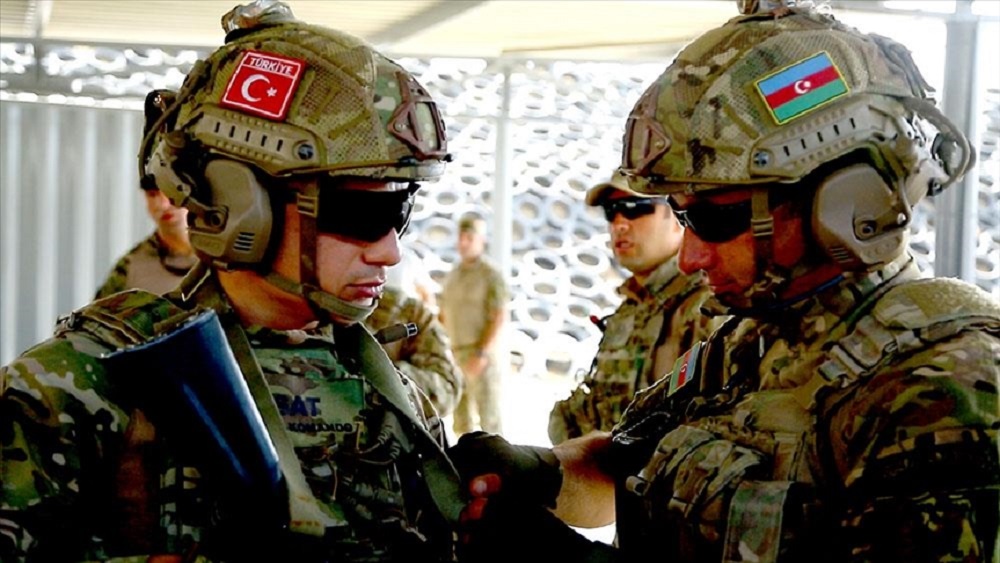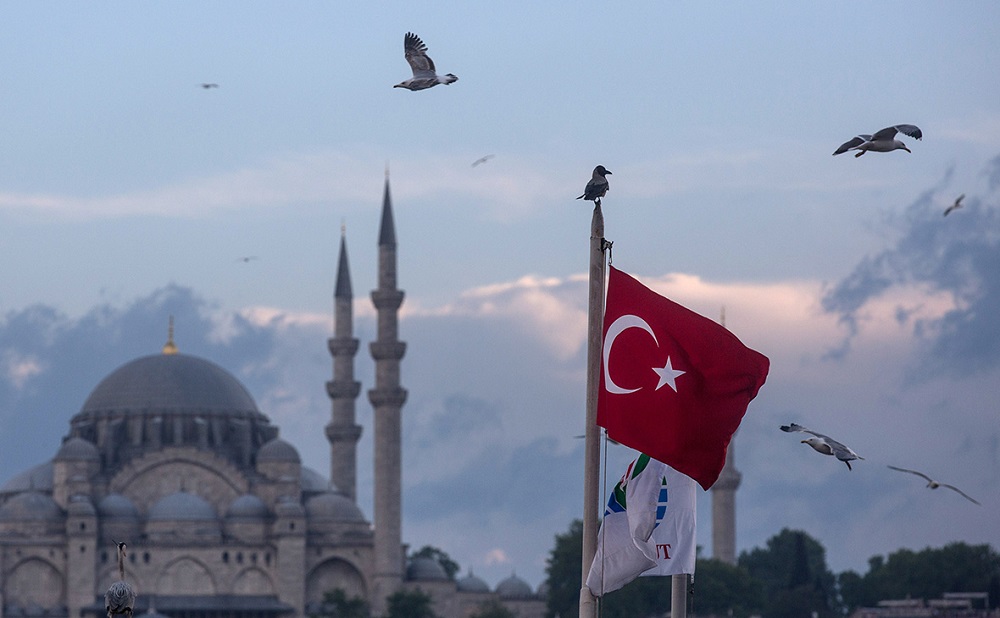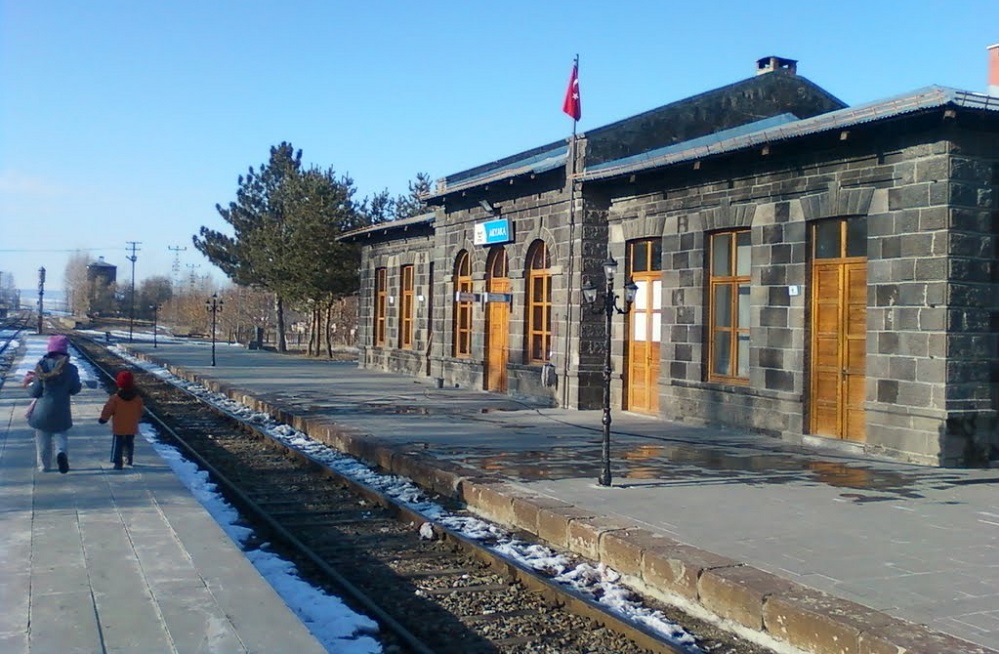Turkey is on the brink of war with Greece. What's happening?
Turkey and Greece on the brink of war
Relations between Turkey and Greece, both NATO members, have become strained to the limit. The nations periodically accuse each other of violating each other’s airspace with military aircraft, and air defense systems are brought into combat position. According to experts from both countries, the reason for the escalation has to do with decisive elections in both Turkey and Greece next summer.
- Tao-Klarjeti – the cradle of the Georgian Kingdom. Video
- Regional processes without taking into account Armenian interests? Opinion
- Putin-Erdogan negotiations: agreements on the region and risks for Armenia. Opinion
Roots of the conflict
The conflict between Turkey and Greece consists of two parts Cyprus and the region which is called “Greek islands” of the Aegean.
In 1974, in response to the actions of the Greek military regime, Turkey conducted a military operation in the northern part of Cyprus. Formed at that time and still recognized only by Turkey, the TRNC (Turkish Republic of Northern Cyprus) has been the most intractable dispute between the two peoples over the past 38 years.
The Cyprus issue, which is the biggest obstacle to Turkey’s EU membership, was close to being resolved in 2004, when Recep Tayyip Erdogan compromised and the parties moved closer to solving the problem within the framework of the Annan plan, initiated by UN Secretary General Kofi Annan. But Greek rejected the solution according to the specified plan and the issue remained.
In recent years, another topic has become a point of contention in the Cypriot region. In search of an alternative to Russian sources of oil and gas, Greece, Egypt, Cyprus and Israel began looking for energey deposits in the eastern Mediterranean, which angered Turkey.
Turkey began to interfere with their prospecting on northern coast of Cyprus. To this end, Turkey even managed to sign an agreement on the division of the Mediterranean Sea with the Libyan government, supported by the UN. But the Mediterranean crisis remained unresolved.
The Devastating Consequences of a US Visit
In March 2022, Greek Prime Minister Kyriakos Mitsotakis met with Turkish President Recep Tayyip Erdogan, after which the parties began to build a seemingly constructive dialogue. But just two months later, Kyriakos visited the US, which had a devastating affect on Greek-Turkish relations.
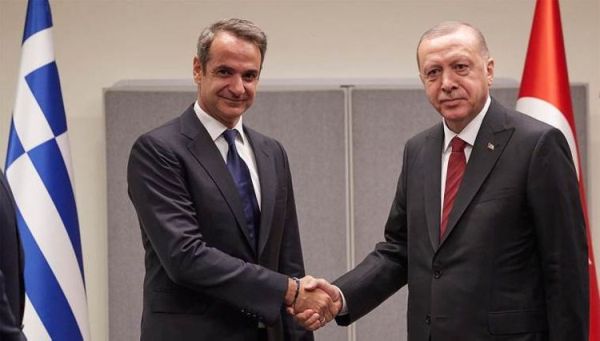
Turkey, which had received S-400 air defense systems from Russia, was cut off from a deal with America to receive F-35 fighters. Ankara tried to negotiate the purchase of F-16 fighters and their modernization.
Speaking in the US Congress, Kyriakos Mitsotakis called on US lawmakers to prevent the sale of F-16 aircraft to Turkey, and relations between the two countries deteriorated again.
Immediately after, Erdogan said in one of his speeches: “We agreed with Mitsotakis that we will resolve all issues among ourselves without the interference of third countries. After all that has happened, there is no such person for me as Mitsotakis.” Relations between Turkey and Greece were broken.
Recrimination
Today the most acute issue between the two countries is the issue of islands located in the Aegean Sea. According to the Lausanne Treaty of 1923, some were transferred to Greece, the others were under the jurisdiction of Italy. But after the Second World War, in 1947, the Italian islands passed to Greece, with a condition for their demilitarization.
Despite this, recently Turkey has warned several times about the supply of weapons to these islands from Greece.
The two countries have not yet been able to share the airspace over the Aegean, which leads to frequent mutual accusations of violating the airspace with each other’s aircraft.
The last such incident occurred in early September. Turkey accused Greece of putting S-300 air defense systems on the island of Crete on alert in response to Turkish F-16 fighter jets flying over the Aegean as part of a military exercise. But Athens denies these accusations, and in response accuses Ankara of flying jets there without warning.
After this incident, Turkish President Recep Tayyip Erdogan said: “I appeal to the Greeks. Remember Izmir. We can strike at night without warning.” With these words he referred to 1922 when, during the Turkish liberation war led by Mustafa Kemal Atatürk against the Greeks, the city of Izmir was liberated from occupation.
Mitsotakis replied: “The Greeks have one answer to threats: ‘ohi’.”
Ohi, or no in Greek, became popular during the Second World War, when Greek partisans responded to calls of the Italian army to surrender by saying ohi.
At the end of his speech, Kyriakos remarked that he “can never say that for him there is no such person as Erdogan.” “It is up to politicians to negotiate, and I am always ready for negotiations,” the Greek prime minister added.
The economic crisis and the election factor
On top of all this, experts mention the economic and election factors. Both in Turkey and Greece the economic situation is deteriorating sharply; conservative nationalist forces are in power in both countries. And elections will be held in both countries in the summer of 2023.
Erdogan is facing the most difficult election in his twenty years of rule. Over the past four years, the US dollar in Turkey has risen in price by 400%. Annual inflation is above 80%, and according to independent sources, it is about 150%.
Turkish public opinion company MetroPOLL has published the results of surveys for August 2022: those who support the ruling “Republican Union” coalition make up only 40% of all voters. Erdogan may lose not only to popular potential candidates Ekrem Imamoglu and Mansur Yavash, but even to the leader of the leading opposition Republican People’s Party, Kemal Kılıçdaroğlu, who is not even positioned as the “number one candidate” from the opposition.
The situation on the other side of the Aegean is almost identical. Support for Prime Minister Mitsotakis is currently below 35%, according to Greek public opinion company MRB. The main rivals of his New Democracy party, the left-wing populist coalition Syriza and the coalition’s offshoot, the social-democratic Pasok, have votes as high as 40%.
These results suggest that in both Athens and Ankara the conservative forces in power need the conflict in order to quell leftist opposition, leaving Turkey and Greece on the brink of war.
The leader of Turkey’s leading opposition Republican People’s Party, Kemal Kılıçdaroğlu, expressed his opinion on this as follows: “Mitsotakis and Erdogan have interests in common: both are losing votes and both are playing the populist war card.”
The leader of the Syriza coalition in Greece, Alexis Tsipras, responded by tweeting in Turkish: “Radical nationalism cannot be the answer to the economic crisis our countries are facing.”
According to experts from both countries, if the ruling right-wing forces change in Turkey and Greece in the summer of 2023, tensions in the Aegean will noticeably decrease.
Turkey and Greece on the brink of war










